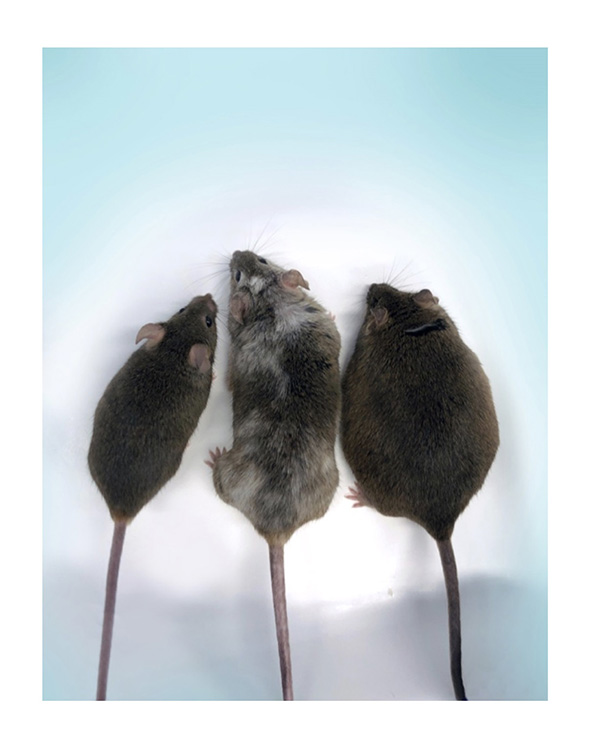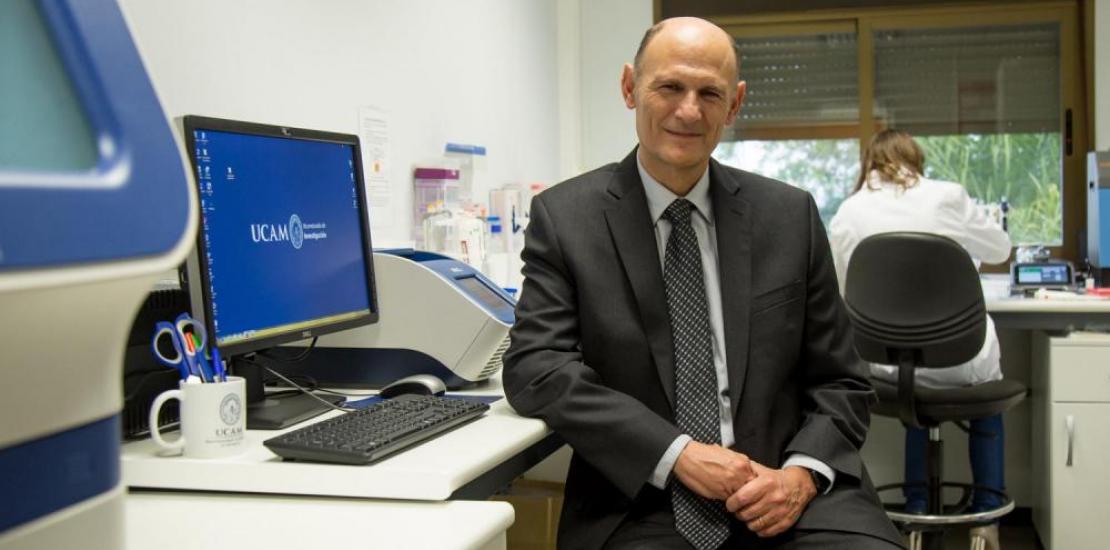Izpisúa proves that the consequences of lifestyle habits are passed on to our descendants
The team of researchers led by UCAM Professor of Developmental Biology, Juan Carlos Izpisúa, has proved that the epigenetic marks acquired at different points in the genome through interaction with the environment are transmitted to the offspring in mammals. The journal Cell publishes this research, a milestone in the controversy between Darwin's and Lammark's theories. As expressly stated in the article, Izpisúa has dedicated this research to the recently deceased UCAM former president, José Luis Mendoza.
One of the most important debates in the history of biology, a debate that has greatly helped to explain the causes of evolution, is the confrontation between Darwin's theory of natural selection and Lammarck's theory of the heritability of acquired characteristics, which postulated that each organism changes during its lifetime to adapt to its environment with these changes being passed on to its offspring.
The article published today in the prestigious journal Cell – derived from a project promoted and funded by UCAM – demonstrates for the first time that epigenetic marks acquired for different reasons in some areas of the genome are transmitted to offspring and over multiple generations in mammals, as well as their associated phenotypic traits. In this case, mice were studied for DNA methylation in the CpG islands associated with the promoters of two metabolism-related genes, Ldlr and Ankrd, which are associated with hypercholesterolemia and obesity, respectively.
According to Dr Izpisúa, ‘developing this study has taken us more than 10 years of work and proves the importance that the environment can have, through epigenetics, on the future of our lives and those of our descendants’.
To conduct this study, the researchers created obese and hypercholesterolaemic mice by methylating the CGI promoters of the Ankrd and Ldlr (low-density lipoprotein receptor) genes, thereby causing these to be silenced. These methylations occur naturally as a function of an individual's dietary habits or lifestyle and do not affect the individual's gene sequence. Using this model, they were able to observe in the mice’s offspring how the epigenetic changes (methylations) produced by gene editing were passed on to the descendants over several generations, resulting in obese and hypercholesterolaemic mice.

Image from the research into the epigenetic transmission of obesity in mice. From left to right: (a) control mouse, (b) first generation mouse after modification and (c) third generation mouse after modification.
This work per se marks a methodological milestone that will undoubtedly be an important tool in the study of epigenetics in general.
‘In this case, it has enabled us to present the first direct evidence that epigenetic information can be stably transmitted to offspring through the paternal and maternal lines’, said Estrella Núñez, UCAM Vice-Rector of Research and co-author of the article.
These observations provide the first evidence of transgenerational epigenetic inheritance in mammals. This knowledge will have implications for the role of epigenetic inheritance in biological macroevolution as well as in mammalian embryogenesis. ‘These rodent studies, if proven in clinical trials, will help us gain a better understanding of the aetiology, diagnosis and susceptibility of descendants to non-genetically inherited human diseases, such as hereditary susceptibility to cancer, cardiovascular diseases, neurodegenerative diseases and obesity’, added Izpisúa.




